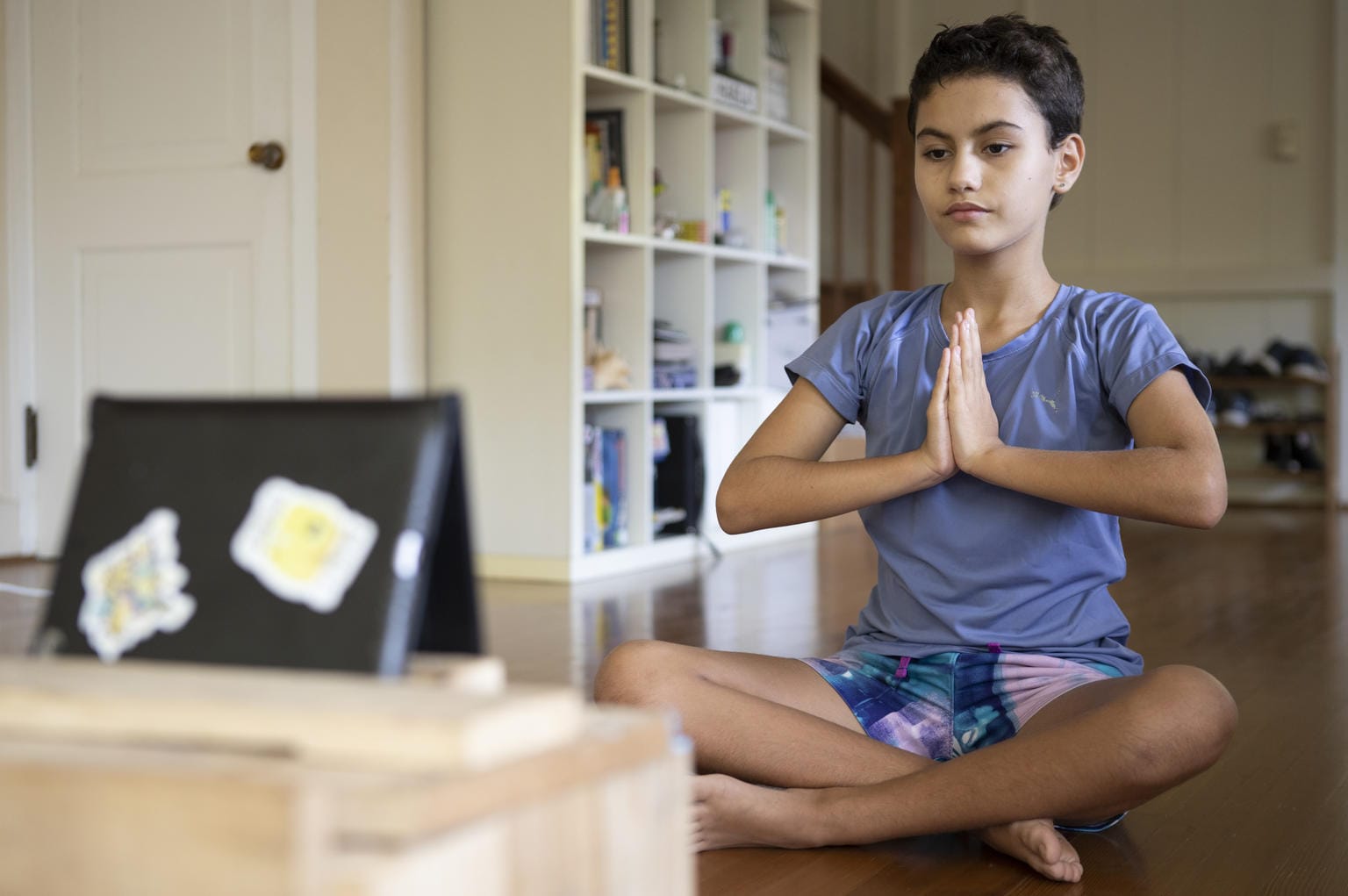Copyright © 2025 UNICEF HUNGARY
As the world works to recover from the health and economic crisis caused by the coronavirus epidemic, we are on the verge of another catastrophe. It cannot be overstated how much pandemic has affected young people’s mental health: it is one of the most serious aftermaths of the epidemic. The future of the whole generation of Hungarian children may also be affected by what has happened to them, to the people close to them and to our entire society in recent months. Protecting the mental health of Hungarian families is an important part of UNICEF’s mission and this work has never been more important than in the current situation. We are assessing the exact situation, drawing society’s attention to this issue that affects all of us and looking for solutions. Children are silent victims of the epidemic. Abuse, impoverishment and severe psychological issues are attacking the most vulnerable – but there are also many negative effects on those who are not among the extremely vulnerable. We can’t let a lost generation grow up in this way.
Our goal is that the “COVID generation” can continue its life not weakened, but strengthened. To this end, there is also a need for a thorough understanding of the phenomena, social discourse, a search for solutions and a need for decision-makers to provide adequate resources for the mental health problems of young people. UNICEF Hungary’s task in all this is to raise awareness of the issue that affects us all and to provide knowledge and professional support for common social objectives.
Research results
According to half of Hungarian parents, the mental health of children deteriorated during the epidemic
UNICEF Hungary will present research to assess the exact effects of the epidemic on the mental health of children and young people in Hungary in the summer of 2021 through engagement withparents, child professionals and those affected themselves. In the light of the research results, we can provide targeted assistance to both children and the adults working with them. It is equally important to help identify relevant symptoms and phenomena and to raise the awareness of society, especially of parents and professionals with responsibilities for their children that children may need help.
How can we help children and young people maintain their mental health?
We provide parents and child professionals with training videos on how the epidemic affects young children and adolescents. In short films, an expert helps to detect different symptoms, categorise problems, and offer practical advice to the adults concerned, as well as young people themselves.
How will the pandemic affect children and young people?
The epidemic is seriously destroying the mental health of children and young people. Kindergarten/school closures, increased tensions in many families, increased domestic violence, lack of social connections and contemporary communities, excessive online presence, cyberbullying, lack of leisure activities, and fear of virus and loss of parents and relatives have all contributed to this process. Globally, the incidence of domestic violence increased by 30-70% during the epidemic, and online abuse among students increased by 70%. These traumas heal slowly and some of the adverse mental effects can impact our children over the long term if we don’t do something about it.
What is UNICEF doing for the mental health of children and young people?
UNICEF Hungary responded to the new challenges in the first few minutes of the pandemic by making donations to support institutions, hospitals, children’s homes, temporary accommodation and maternity homes to help the children living there with their daily lives, their health, their education and to maintain contacts with family and friends.
We have launched a supervision project to provide mental health counselling to child welfare and child protection professionals and educators. Applicants will be helped to deal with the increased stress and given guidelines to work more effectively with children at this critical time. Professionals can only help young people if they are well themselves.
We are particularly addressing the phenomenon of cyberbullying, or online bullying. The #YouAreNotAlone campaign shows young people that they are never alone in their problems and have a place to look for help.
Our campaign against child abuse, Read the Signs and Stand Up for Children, has highlighted the shared responsibility of society to protect children. There is a free mini-course on the concept and types of child abuse, as well as a detailed but easy-to-understand child protection guide. These provide useful information for parents, educators, the children themselves, but most of all for everyone who wants to be part of the solution and feels it is important that they do not accidentally stand asidean abused child if they can protect it.
Through our mental health workshop, corporate or institutional clients can get a 1.5-hour interactive group session for their employees on how the epidemic affects the well-being of children, families and single people and what an individual can do to protect himself or his/her loved ones.
UNICEF Hungary is always working for the mental health of children and young people. More and more campaigns and programmes are being launched, with experts helping children, young people and adults alike to deal effectively with the short- and long-term psychological effects of the epidemic situation.
Tips for maintaining the mental health of young children
The long-running coronavirus epidemic can have as damaging effects on children’s mental health as it does on their physical health. It’s a different time for them than it is for adults. Mental health cannot be taken lightly, because the experience of the last year may impact the health, everyday life and future of an entire generation for a long time. Our children kids need our attention.
How to be “good enough” parents? How to spend quality time with your children when our everyday life has become more difficult for us? How does the epidemic affect siblings Do we restrict computer use? How do fairy tales help?
In this video, Krisztina Peer, a clinical child psychologist and story therapist, gives practical advice to parents, educators, and anyone who wants to support children in their environment to combat the harmful mental effects of the epidemic as effectively as possible.
This video was produced with the support of the Swedish Chamber of Commerce and the Embassy of Sweden.
Tips for maintaining adolescent mental health
It is becoming increasingly clear that the coronavirus epidemic can have a detrimental effect not only on the physical health of young people, but also on their spiritual world. It’s a different time for teenagers than it is for adults. Mental health cannot be taken lightly, because the experience of the last year may impact the health, everyday life and future of an entire generation for a long time. Let’s keep an eye on the young.
In this video, Daniel Labancz, clinical psychologist and coordinator of UNICEF’s Young Ambassador program, gives practical advice to parents, educators and anyone who wants to support adolescents in their environment to combat the harmful mental effects of the epidemic as effectively as possible. UNICEF’s Young Ambassadors will also speak out, telling us about how they are affected by the epidemic.
This video was produced with the support of the Swedish Chamber of Commerce and the Embassy of Sweden.








